Linnéa, DJ Gigola, and Brat Star talk community, freedom and the beauty of losing yourself.
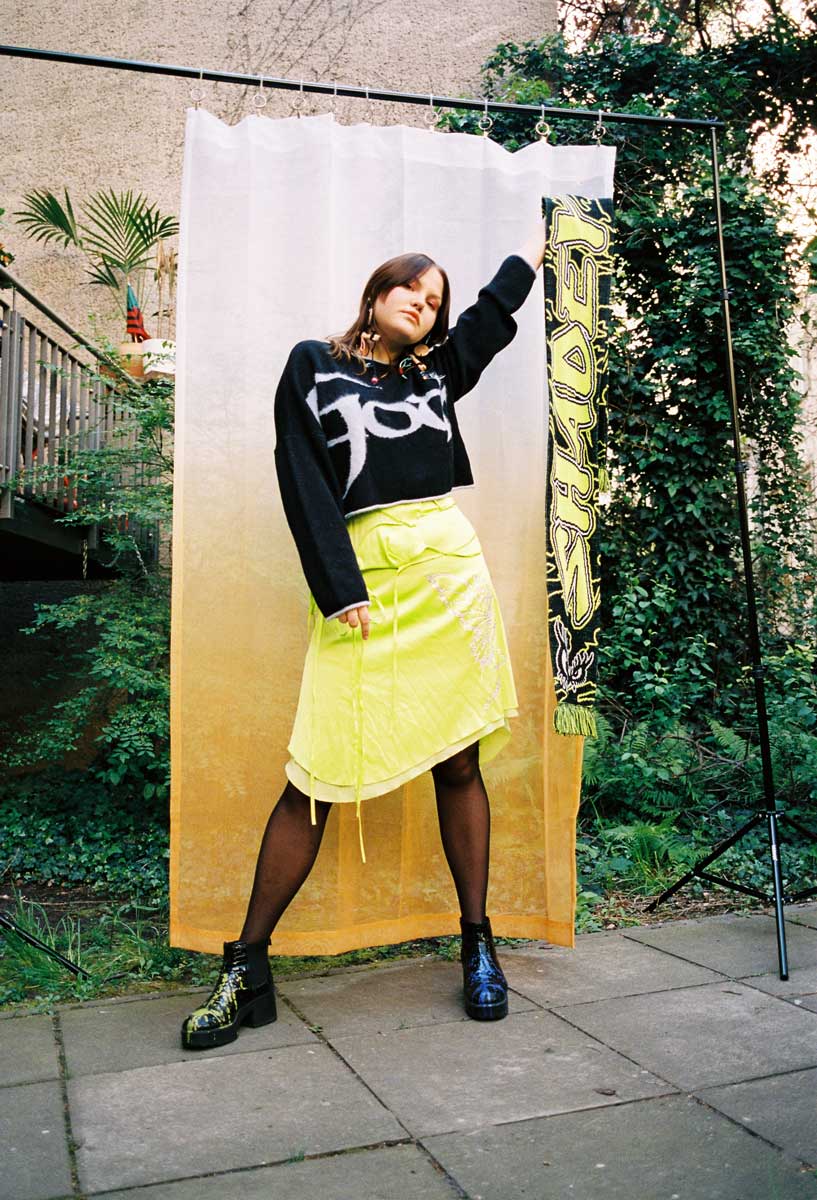
1991 was the beginning of a new era. With the demise of the Berlin Wall, not only had a country finally been united, it was also the starting point of an expanding Utopia. A Techno Utopia in which love, community, and peace reign. The newly found freedom created a rebellious subculture that found a home in underground clubs and record stores. Led by hedonism, innovation, and unbound creativity, the non-conformist movement stood on the polar opposite of a conservative mainstream society. At night, the true power of Techno Utopia came to life.
To this day, Berlin hasn’t lost its reputation of being the techno capital of Europe. Its clubs, like Tresor, Berghain, and ://about blank, attract ravers from all over the world, promising escapism in the form of bpm. However, some things have changed. The adventurous hunt for vinyl has been simplified by digitalization, and dress codes aimed at pleasing the bouncers are discussed online. Rising prices and gentrification have done their part to topple authenticity and integrity. Amidst this development, the terminology of ‘rave’ dilutes more and more. Or better: it evolves and is ceaselessly filled with new meaning.
A young generation of artists has taken over nightlife culture, exploring fresh spaces and sounds. To break with boundaries—both societal and musical—lies in their DNA. They speak to a new subculture that strongly believes in community, in self-expression, in diversity, in support. They use the Internet without loosing touch with real life exchange. They question old power dynamics in order to lead the rave scene into the next era.
LINNÉA, DJ GIGOLA, and BRAT STAR—three of Berlin’s most influential DJs—talk about community, the beauty of losing yourself, and the ever-changing face of the German capital.
LINNÉA
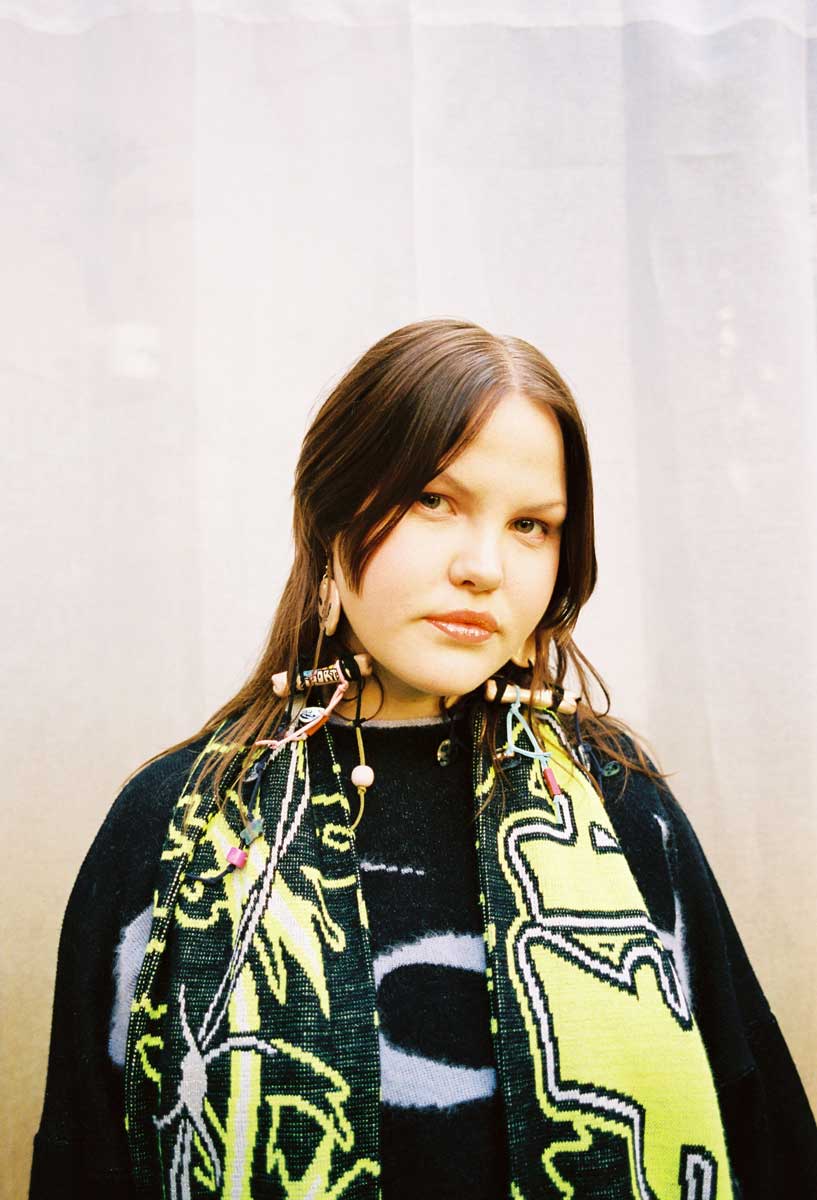
What’s your role in the Berlin nightlife scene?
I’ve been DJing for over half a decade now, and about four years ago, I finally gained access to some club standard CDJs at Acud Macht Neu in Mitte, Berlin. That was after a long and frustrating period of desperately trying to learn and practice with the much preferred—from my perspective—but extremely expensive and inaccessible DJ hardware. I could quickly learn how to navigate the equipment and simultaneously start sharing the recently gained knowledge to friends that were also desperate to learn. Teaching others also made me learn even faster myself.
This sentiment has since built the foundation of our (c)DJ mentoring program with No Shade, the DJ collective I co-founded with friends in collaboration with Acud Macht Neu back then. With No Shade, we’ve been mainly focusing on teaching and mentoring female, non-binary and trans beginner DJs. We also run a party series and we try to provide regular group workshops open for people outside of the collective. We’re attempting a very direct approach to levelling out the existing gender imbalance in the extremely male dominated DJ world.
Rave is such a fluid term—what does it mean to you personally?
I usually wouldn’t use the term when talking about parties or nightlife in general. I guess since I associate the term with the classic ‘90s rave culture that established itself as a subculture mainly in the UK, the US and the Netherlands. For me, to describe a party as a rave, I think it would have to have a strong underground feel to it, as well as high bpm music, and, most importantly, the right kind of ecstatic ambience.
How did you get in touch with the rave culture?
My first “raving” experience must have been when I attended my first festival as a teenager in Sweden.Although, at that point I had probably already managed to sneak in to some illegal underground parties in the industrial parts of my hometown Gothenburg. There’s also a lot of summer open airs in Sweden, which was definitely a highlight as a minor trying to party over there. The open air forest parties definitely had a strong rave vibe to them.
What is it that makes rave culture so appealing?
Drugs. Music. Escapism.
For some people, clubbing is holy; it becames a powerful replacement for religion and family. Can you relate to that?
I believe that dancing and bonding over music can be a very necessary outlet for a lot of people, serving as an important contrast to working life by creating a sense of unity that many probably wouldn’t experience otherwise. There definitely have been moments in the past where I, as part of an audience, have experienced a collective emotional response to a change in the music that managed to trigger the same reaction in a majority of the crowd. That sort of thing can, of course, give off a spiritual, or almost religious, impression.
Your music really stands out in the Berlin music scene, which still is highly influenced by techno. How did you come up with this sound?
I was provided with an option that seemed far more attractive to me than the typical techno sound. Through parties like Janus and Creamcake, I got introduced to a new sound that had started establishing itself back in 2013. What drew me to this very fresh, and necessary, new wave of club music, was how it was very unpredictable genre-wise, meaning that anything, any genre, could be played in a DJ set—and it totally worked. It was dynamic and never boring. I think I had been unawarely waiting for something like this, since I never really vibed with the techno sound in Berlin.

Your work is strongly focused on support, on creating equal power dynamics. Why is that so important to you?
Collaboration and working as a collective is my preferred way of doing things. I get motivated by having other people depend on my input. I’ve come to learn that working solely for myself and my own personal success or gain is not enough to motivate me. Being part of functioning and supportive communities are huge factors in the improvement of quality of life for a lot of people. It’s sometimes even necessary for survival, especially when it comes to marginalized people. I’d wish for everyone to attempt collaboration as opposed to this constant competition that, in my opinion, is what our capitalist society tries to turn our focus towards.
Speaking of marginalized people: In the last years, the discussion around equality and female representation in club culture has become more relevant. What changes can you notice?
It’s great that the quite obvious gender inequality within the music industry is finally being acknowledged to the point where trying to ignore it would hopefully result in consequences not worth risking. That way, things can actually change, since a lot of people that aren’t suffering from the imbalanced industry environment, won’t adapt or take responsibility, unless they’re motivated by avoiding a decrease of, especially financial, success.
DJ GIGOLA
What’s your role in the Berlin nightlife scene?
For me, it is hard to define a certain role. In the very end, I just try to contribute to and spread the culture that I was lucky to encounter in my teenage years growing up in Berlin. I have been with Live From Earth since 2016—an artist collective specialized in music, events, video work and fashion.
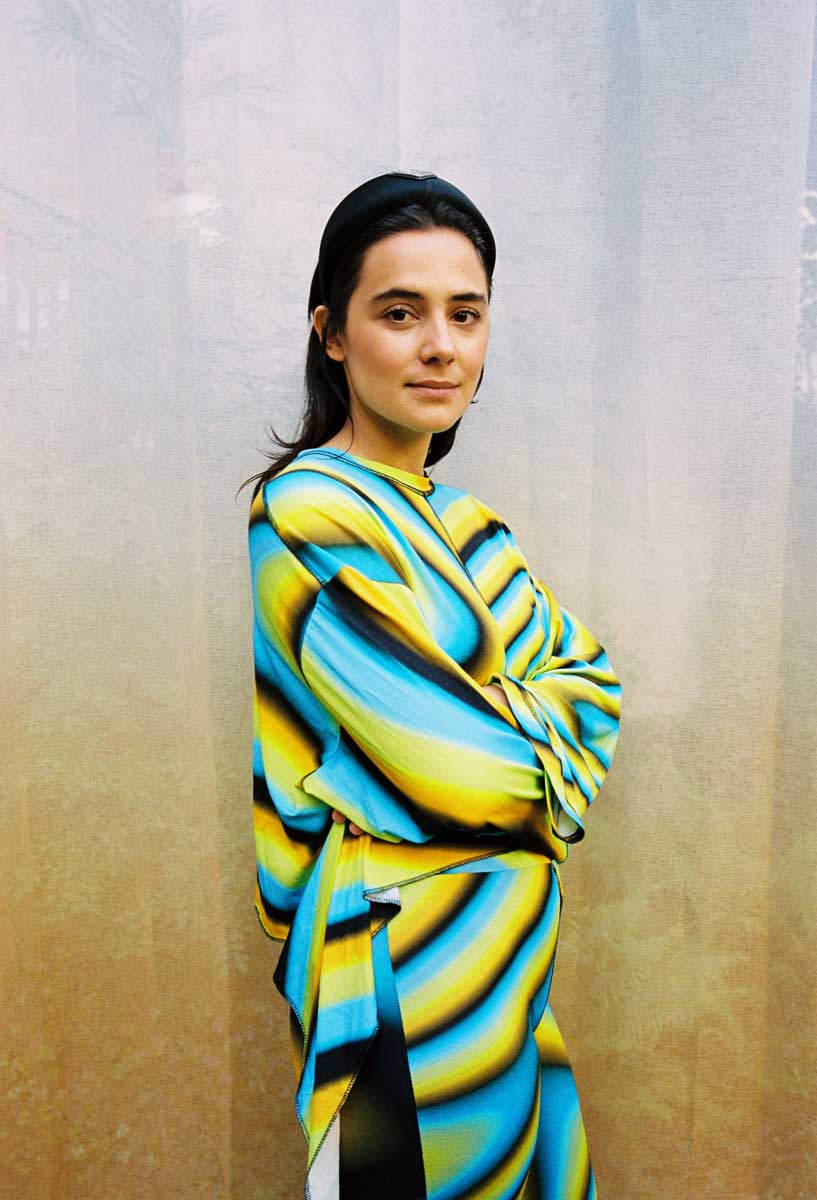
You grew up in Berlin—when did you first get in touch with the omnipresent rave scene?
The first time I got in touch with rave culture was when I was 15. I was overwhelmed by the energy on the dance floor, which was connecting all the different people in the same room through the DJ’s selection. For me, it was an eye-opening experience; finding a space and a community I wanted to be part of, and a sound I was curious to find out more about.
What does ‘rave’ mean to you personally?
Rave, for me, is a term that has a lot of different connotations. I like to define it as loosing yourself in the moment through sound and body movement, a certain state of mind, trance-like, that you reach when being surrounded by other people.
Is it that aspect of ‘loosing yourself’ that makes this culture so fascinating for the youths?
From my perspective, the culture appeals to a young generation for several reasons. In times of globalization, everything has become faster and life has become more virtual, with encounters happening mainly online. The Internet offers freedom and a broad spectrum of possibilities to the young generation, but what might seem amazing, can also be frightening, because it’s more difficult to make choices. But it’s only through making choices for yourself that you can get closer to who you are.
I think this constellation is the reason why young people get in touch with rave culture. It offers integration into a community and into a familiar setting. Going to a rave is something that can’t be replicated online—it’s a real-life thing that connects you with yourself and other people and that you can experience at that moment only. Furthermore, it provides safety, an escape from daily problems, from stress and from a world in which everything has to be faster and faster. In the club, time seems to be standing still, and you can just be who you are.
And how important is a sense of community between the artists and the DJs?
I think community forms a big part of the nightlife scene. The club experience is made between people. Furthermore, being part of Live From Earth, I’m used to a constant exchange with other artists and to the idea of supporting each other. I believe that, especially in times, when finding spaces is more and more difficult because of financial changes in Berlin, it’s important to push and support other local artists, to collaborate and use the joint power to make an effect on actual club culture in the city. At least that’s what we’re trying to do at Live From Earth.
Some people refer to Berghain as ‘church’. Clubbing became a replacement for religion, for family. Can you relate to that?
I understand that—depending on the background a person comes from—there are different ways to find a safe space and a feeling of family. Clubbing is always something you experience in a group. A group that gathers people from different backgrounds that believe in the same experience, the same rules, that seek a safe space and that value personal respect and the freedom to be whoever they want to be. For me, a true techno clubbing experience provides the exact space for these desires and it adds, mostly through music but also with other elements, the possibility to experience yourself within this setting. Often, you find yourself again in the same club, with the same people and the same vibe—clubbing becomes something familiar. I think this is what creates a feeling of identity and can therefore give the same shelter as family or religion. Nonetheless, it can also become something special for people who’ve already found shelter in their family or religion—another important layer of self-experience and safety. So, yes, I can relate to that.

Is the rebellious spirit of Berlin still alive?
Berlin is not as affordable, unrestrained and easily accessible as it used to be. The Internet makes it possible to have access to music wherever you are, and digging out music isn’t locally-bound anymore. The industry is trying to find ways to sell the Berlin image as “capital of techno” due to its high popularity—to a point, wherre it’s threatening the safety and the survival of clubs. Compared to the early ‘90s, it seems that the actual club community is facing more obstacles to carry on with this original spirit. But if it wasn’t for that exact community that built, and contributed to, the electronic scene over the past 30 years, we wouldn’t have the rich culture we enjoy now.
As long as there are people dedicating their time and lives to conserve, develop and protect this culture, the spirit will remain alive. It might get harder, but I’m happy to witness enough people in this city, who are willing to work hard to keep Berlin’s legacy as a center for techno culture. And maybe that’s what makes it as rebellious as it used to be.
What would be your wish for the scene?
I’d wish for the scene to keep the drive to find spaces in Berlin, where we can still have affordable parties. I also hope that everyone continues to work hard and is not afraid to work together, and that we conserve the safety of clubbing. keeping the club experience where it has its roots: in reality.
BRAT STAR
How would you describe your role in the Berlin nightlife scene?
We live in infinitely confusing times. I want to offer stillness through an embrace of the chaos of sound and existence. I’m looking to tap into a shared world of meaning—songs, sounds, melodies, artists, rhythms, riffs we all know—to establish a connection and create a sense of security before diving into the abysses of the unknown. I like to let pop songs drown in walls of noise before letting new rhythms re-emerge. I will take you through the euphoria and the dysphoria with all the banality in between.
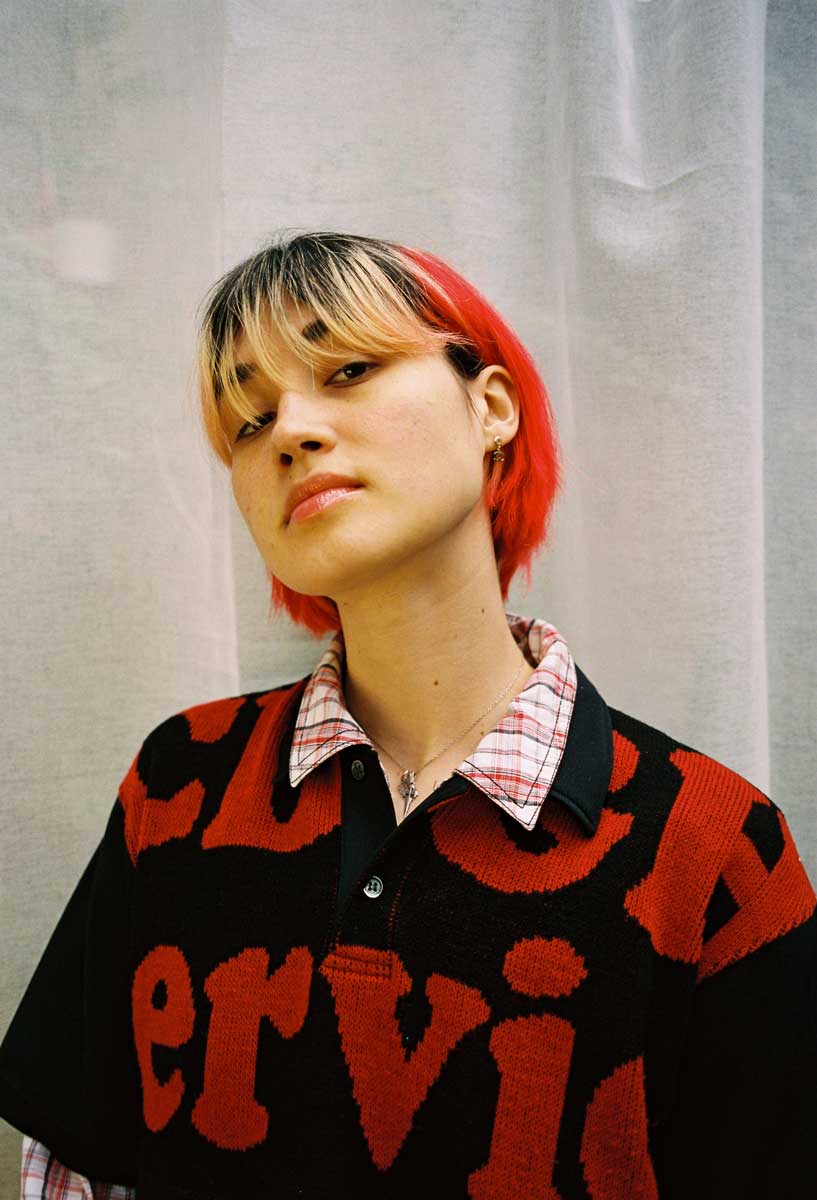
When was the first time you got in touch with the rave culture?
I think I’ve been raving for as long as I’ve been alive. I used to perform choreographies to Dead Can Dance for my parents and their friends when I was little, and at the end of the show I would insist that the audience joins in. I find solace in the immateriality of music, and I feel humans most intensely when we’re wrapped in the same sounds.
What does the word ‘rave’ mean to you?
I like the images and feelings the word rave brings to mind. I think of raving as letting go and giving in to music and some form of togetherness. I think of raving as a way to transcend physicality, which is my main enterprise as an artist.
Togetherness. Is a sense of community important between the artists as well?
Community brings things to life. The more minds hear and share music, the more people rally around an energy or an idea, the realer it becomes.
For some people clubbing is holy. Can you relate to that?
Yes. Music is spiritual to me. It has saved my life and I hope to do the same for others with my own music.
What is it that makes rave culture so appealing?
It has something to do with feeling free, feeling like there could be alternatives to the suffocating normalcy and oppressiveness of the everyday.
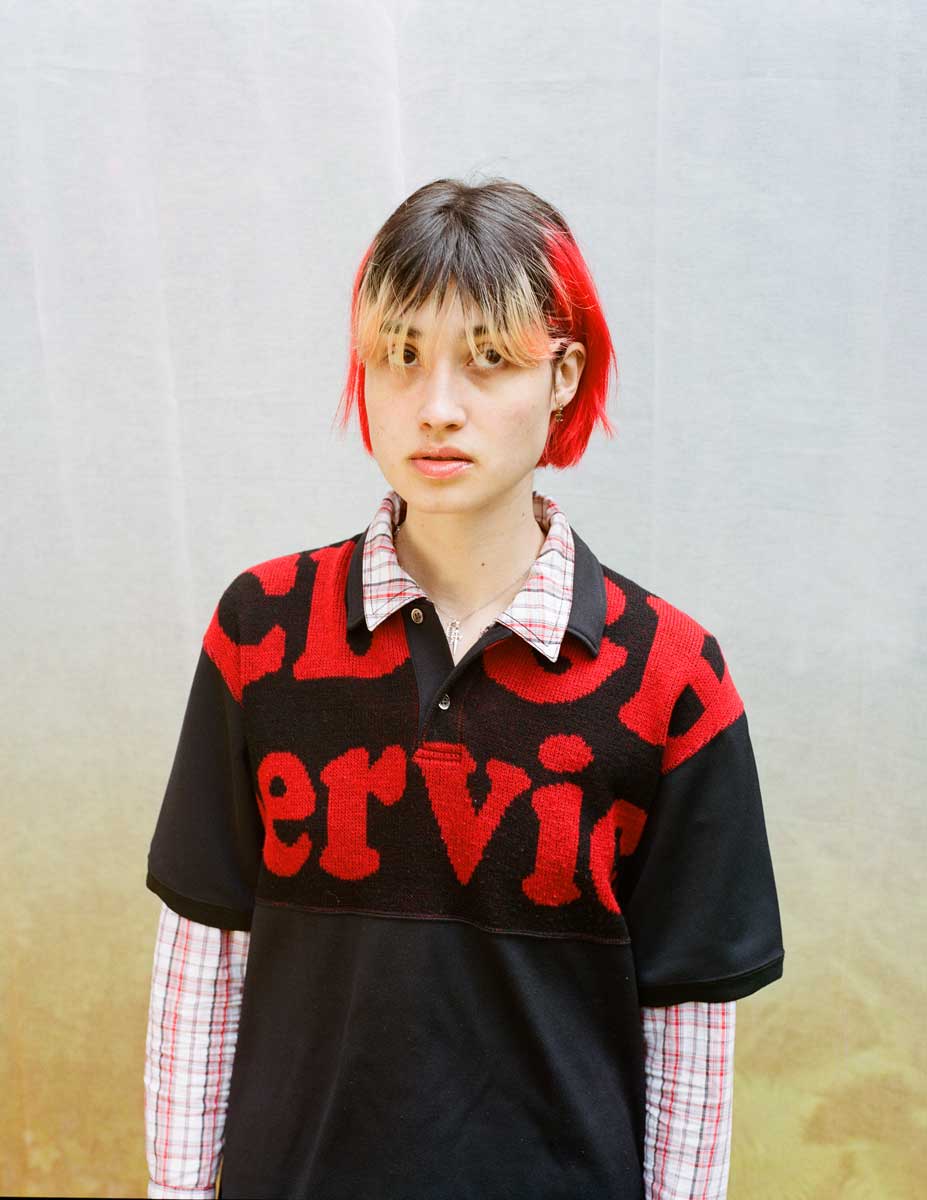
Club culture traditionally has a political layer—do you feel the scene still has the power to bring a change in society?
I believe in dreaming. And I think congregated dreaming has a special kind of power. It’s hard to define progress and even harder to measure it, but one thing is for sure: nothing is true forever. Anything can change at any time.
What would be your wish for the nightlife scene in Berlin?
I wish upon everyone here a lot more dancing in their lives in general and at shows in particular.